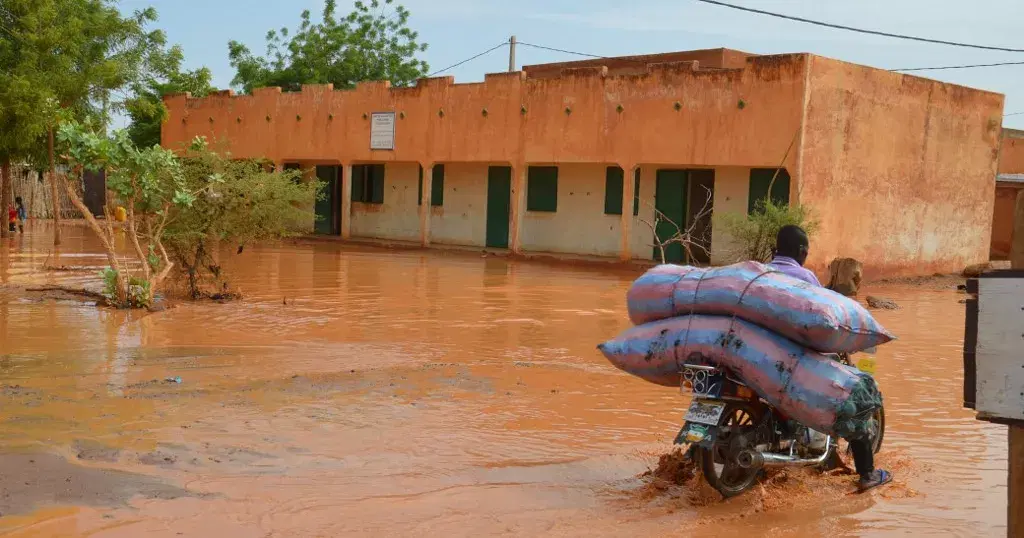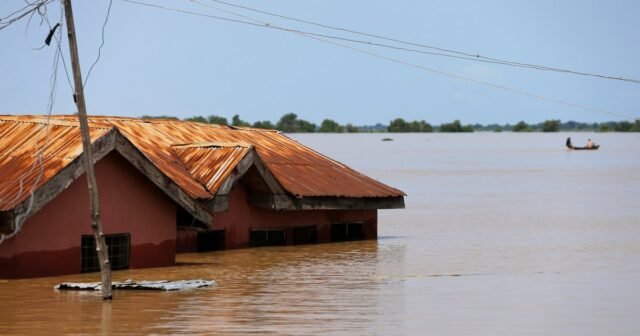Federal Government yesterday expressed concern that 30 states of the federation and the Federal Capital Territory, FCT, are currently at risk of flooding, reminiscent of last Thursday’s storm in which over 200 persons lost their lives in Mokwa, Niger State.
Even though more than 500 people have been reported missing, thousands of people are now homeless after many houses were washed away.
Abia, Adamawa, Akwa Ibom, Anambra, Bauchi, Bayelsa, Benue, Borno, Cross River, Delta, Ebonyi, and Edo are among the states with a high risk of flooding.

Others include the Federal Capital Territory (FCT), Gombe, Imo, Jigawa, Kebbi, Kogi, Kwara, Lagos, Nasarawa, Niger, Ogun, Ondo, Osun, Oyo, Rivers, Sokoto, Taraba, Yobe, Zamfara, and Zamfara.
The flood in Mokwa was caused by excessive rainfall that was exacerbated by the consequences of climate change, according to Engineer Joseph Utsev, Minister of Water Resources and Sanitation, who also sounded the alarm during a briefing in Abuja.
He said that the high death toll was brought on by residents of the state disobeying flood warnings.

Read Also, Flood: Fuel scarcity looms in Abuja, Northern Nigeria, PETROAN, IPMAN react
While asking states to put measures in place to stave massive flooding that could destroy lives and properties, the minister said: “The Federal Ministry of Water Resources and Sanitation extends its heartfelt sympathy and solidarity to the government and the good people of Niger State, especially the affected communities in Mokwa, who have experienced losses, deaths and displacements as a result of this natural disaster.
“I like to emphasise that the flood was not caused by water releases from either the Kainji or Jebba dams and that both dams are intact and safe.
“We commend the immediate response efforts of Niger State government, local authorities, and first responders who have been working tirelessly to provide relief and support to the victims.
“The flood in Mokwa town was primarily caused by heavy rainfall due to extreme weather conditions, occasioned by climate change, an emerging global phenomenon, which overwhelmed local drainage systems.






